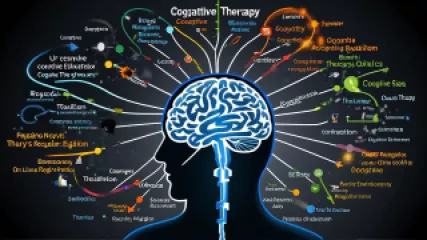Personal Space Importance
Reclaiming My Personal Space: A Journey of Self-DiscoveryThe Importance of Personal SpaceAs a young adult, I always prided myself on being a social butterfly, the life of the party, and someone who thrived on constant interaction with others. I loved being surrounded by people, engaging in lively conversations, and never shying away from a crowded room. However, as I grew older and entered the workforce, I began to feel an increasing sense of discomfort and overwhelm in these same settings that had once brought me such joy.It was a gradual change, almost imperceptible at first, but over time, I found myself craving moments of solitude and quiet reflection. The constant barrage of noise, the need to be "on" and engaging with those around me, and the lack of personal space started to take a toll on my mental and emotional well-being. I found myself feeling drained, anxious, and even resentful of the social obligations that had once been a source of energy and fulfillment.Recognizing the Need for BoundariesAs I delved deeper into understanding this shift in my needs and preferences, I came to the realization that the concept of personal space was of utmost importance to my overall well-being. Personal space, the invisible boundary that we establish around ourselves, serves as a crucial buffer against the demands and intrusions of the outside world. It is the sacred zone that allows us to recharge, process our thoughts and emotions, and maintain a sense of autonomy and control over our own lives.For me, the lack of personal space had been gradually chipping away at my sense of self and my ability to function at my best. I found myself constantly on edge, hypervigilant to the needs and expectations of those around me, and struggling to find moments of true solitude and reflection. It was as if I had slowly lost touch with the core of who I was, replaced by a version of myself that was always performing, always giving, and never truly taking the time to replenish my own inner resources.Setting Boundaries and Reclaiming My SpaceRecognizing the importance of personal space was the first step in my journey of self-discovery and reclamation. I knew that I needed to take active steps to establish and maintain healthy boundaries, to carve out pockets of time and space that were solely my own. This was not an easy task, as it meant challenging the expectations of those around me and stepping out of the comfort zone of being the always-available, always-accommodating version of myself.It started with small changes, such as setting aside dedicated time each day for solitary activities like reading, journaling, or simply sitting in quiet contemplation. I learned to politely decline invitations to social gatherings when I felt overwhelmed, and to unapologetically step away from conversations or situations that felt draining or intrusive. I became more attuned to my own needs and boundaries, and I made a conscious effort to communicate them to those in my life.One of the most significant shifts I made was in my approach to my work environment. As an office-based professional, I had long been accustomed to the constant hum of activity, the interruptions of colleagues, and the lack of personal space. However, I realized that this environment was exacerbating my feelings of overwhelm and diminishing my productivity. I advocated for the creation of quiet spaces within the office, where I could retreat and focus without the constant demands of my coworkers. I also started setting clear boundaries around my time, reserving certain hours for deep work and uninterrupted tasks.The Rewards of Reclaiming Personal SpaceThe journey of reclaiming my personal space has not been an easy one, but the rewards have been immeasurable. As I've embraced the importance of setting boundaries and carving out dedicated time and space for myself, I've noticed a significant shift in my overall well-being and sense of fulfillment.I've experienced a renewed sense of clarity and focus, as the constant distractions and demands on my attention have been reduced. I've found that I'm able to approach my work and personal responsibilities with a greater sense of purpose and efficiency, as I'm no longer operating from a place of depletion and overwhelm.Moreover, the act of reclaiming my personal space has had a profound impact on my relationships. By setting clear boundaries and communicating my needs, I've been able to cultivate deeper, more meaningful connections with the people in my life. I'm no longer the perpetually available, people-pleasing version of myself, but rather a more authentic and grounded individual who is able to show up fully and authentically in my interactions.The Ongoing Journey of Maintaining Personal SpaceWhile the initial steps of reclaiming my personal space were challenging, I've learned that it's an ongoing journey that requires constant attention and effort. The world around us is constantly vying for our time, attention, and energy, and it's up to us to be vigilant in protecting the sacred boundaries we've established.I've found that it's essential to regularly check in with myself, to assess my energy levels and emotional well-being, and to make adjustments as needed. Some days, I may need more solitude and quiet reflection, while on others, I may thrive on more social interaction. The key is to remain attuned to my own needs and to honor them without judgment or guilt.Additionally, I've learned that maintaining personal space is not just about setting boundaries for myself, but also about respecting the personal boundaries of others. By modeling the importance of personal space and communicating my own needs clearly, I've found that those around me have become more attuned to the significance of this concept and are more likely to respect the boundaries of those in their own lives.The Transformative Power of Personal SpaceAs I reflect on my journey of reclaiming my personal space, I am struck by the profound impact it has had on my overall well-being and sense of self. By honoring the importance of this invisible yet essential boundary, I have been able to reconnect with the core of who I am, to rediscover the passions and interests that bring me joy, and to approach my life with a renewed sense of purpose and fulfillment.Personal space is not just about physical distance or the creation of solitary pockets of time; it's about the cultivation of an inner sanctuary, a sacred space where we can nurture our deepest thoughts, emotions, and aspirations. It's about the freedom to be our authentic selves, to process our experiences, and to recharge our emotional and mental batteries without the constant demands of the outside world.For me, the journey of reclaiming my personal space has been a transformative one, filled with both challenges and immense rewards. It has taught me the value of self-care, the importance of setting boundaries, and the power of honoring our own needs and desires. And as I continue on this path, I am filled with a sense of gratitude and hope, knowing that the gift of personal space is one that we all have the capacity to claim and cherish.Conclusion: The Importance of Personal Space in Our LivesIn a world that is increasingly fast-paced, interconnected, and demanding of our time and attention, the concept of personal space has become more crucial than ever before. As individuals, we must recognize the vital role that this invisible boundary plays in our overall well-being, and we must be willing to take the necessary steps to reclaim and maintain it.Whether it's setting aside dedicated time for solitary reflection, establishing clear boundaries in our work and personal relationships, or simply learning to say "no" to the constant demands on our time and energy, the act of reclaiming our personal space can have a profound and transformative impact on our lives.By honoring the importance of personal space, we not only nurture our own sense of self and well-being, but we also contribute to the creation of a more balanced and harmonious world around us. When we respect the personal boundaries of others, we foster a sense of mutual understanding and compassion, and we pave the way for deeper, more meaningful connections.As I continue on my journey of self-discovery and personal space reclamation, I am filled with a deep sense of gratitude and hope. I know that the path ahead may not always be easy, but I am steadfast in my commitment to honoring my own needs and boundaries, and to inspiring those around me to do the same. For in the end, the gift of personal space is one that we all deserve, and one that has the power to unlock our fullest potential and greatest joy.















